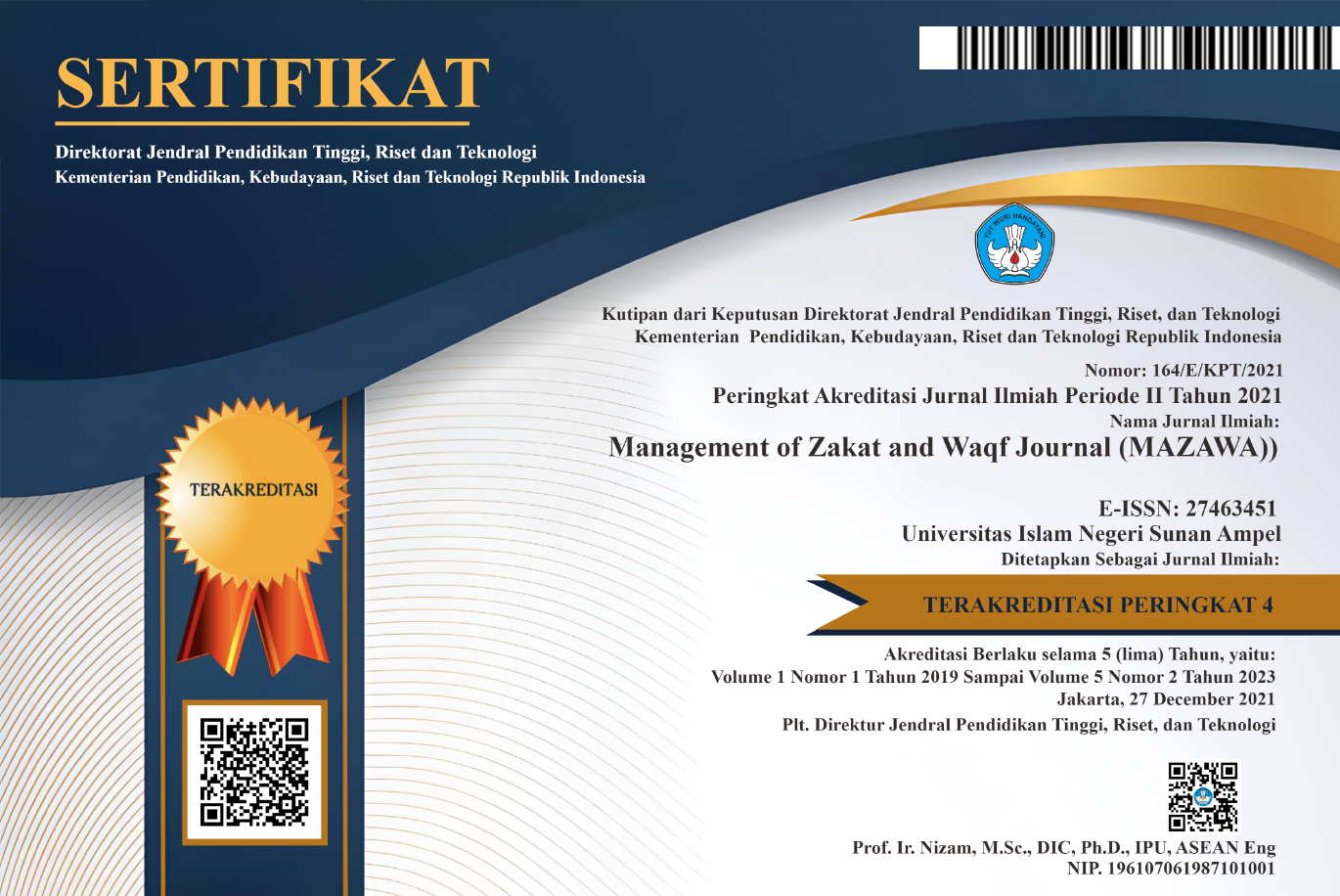Productive Waqf Asset Management based on Primary Scale and Implications for Community Welfare
DOI:
https://doi.org/10.15642/mzw.2023.5.1.85-104Keywords:
Waqf, Asset Management, Primary Schale, Community WalfareAbstract
In some Muslim countries, waqf is economically valuable and a solution to reducing poverty. If able to be developed, waqf even contributes a quarter of the country's income. However, in the Indonesian region, waqf is seen only as a means of religious worship, and it is considered a mistake to change it to a socio-economic direction. This problem is what this research aims to solve, looking at the management of waqf in one of Indonesia's waqf institutions, Roemah Wakaf, as an institution that dares to transform waqf assets into socio-economic value until it develops throughout the region. The result of this research is a solution to the problem of traditional waqf management. This research uses a qualitative approach, the data is taken descriptively by positioning the researcher as the key instrument. Primary data is obtained from interviews with managers, marketing staff and mauquf alaih, while secondary data is taken from documentation studies of annual reports and development plans. The research findings reveal first, the management of waqf assets to run productively. Roumah Wakaf Surabaya starts by planning waqf programs to be productive, organizing by appointing the person in charge of each program implemented, actuating where implementing the planned program, and controlling and evaluating each ongoing program. Second, the impact of productive waqf asset management on community welfare is that it can help the primary, secondary, tertiary needs of mauquf alaih in accordance with the theory of welfare in Islamic economics.
Downloads
Downloads
Published
How to Cite
Issue
Section
License
Copyright (c) 2023 Amirul Haqeem bin Abd. Ghani, Muhammad Fikri bin Aziz

This work is licensed under a Creative Commons Attribution-NonCommercial-ShareAlike 4.0 International License.





